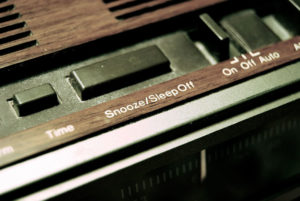
After years of women claiming former comedian Bill Cosby, 78, had drugged and assaulted them over the span of several decades, one of their cases will move forward to trial. Andrea Constand, a former Temple University athletic department employee, filed a civil suit against Cosby in 2005 alleging that he assaulted her in 2004 after giving her Benadryl when she was having trouble sleeping, according to authorities. Constand was told the pills were herbal medication. However, it wasn’t until 12 years later last December, just a day before the statute of limitations were up, that Cosby was charged with three second-degree felonies of aggravated indecent assault. On Tuesday, in a preliminary hearing, a Pennsylvania judge determined that the state had enough credible evidence in Constand’s case to proceed to trial.
According to the 2005 police report read on Tuesday at the hearing, Constand told authorities she was given three pills, which caused her to feel “nauseous” and made her legs feel “rubbery” and “like jelly.” In the same statement, Constand told police officers that Cosby penetrated her with his fingers and woke up with her bra undone. “I told him, ‘I can’t even talk, Mr. Cosby.’ I started to panic,” said Constand to the police in 2005.
Cosby has admitted a sexual encounter did take place, but that it was consensual. Constand did not appear in court. Instead, her statements were read from the police report, which his lawyers argued was hearsay and would bar Cosby from being able to confront his accuser.
“I have never once had a case where the prosecution has relied, in a sexual abuse case, on exclusively hearsay evidence in a hearing,” said Cosby’s lawyer Brian McMonagle. “It is a complete denial of this defendant’s due process rights.” If convicted, he faces up to the ten years in prison.
Sign up for our free newsletters
Subscribe to NPQ's newsletters to have our top stories delivered directly to your inbox.
By signing up, you agree to our privacy policy and terms of use, and to receive messages from NPQ and our partners.
Many of the allegations that have been made against Cosby follow a common narrative similar to that presented by Constand: Cosby allegedly takes an interest in a young woman, invites her to his home or hotel, and gives her some type of drug which incapacitates her before he assaults her. In the unsealed 2005 and 2006 documents of the exchanges between Constand and Cosby’s lawyers, Cosby is quoted as saying, “I didn’t say it verbally, I said, the action is my hand on her midriff, which is skin…I don’t hear her say anything. And I don’t feel her say anything. And so I continue and I go into the area that is somewhere between permission and rejection. I am not stopped.” Constand’s 2005 civil lawsuit was settled in 2006 for an unknown sum, in part due to Cosby’s confession of using Quaaludes on women.
Here Cosby answers a question about his use of Quaaludes in a deposition for Constand’s civil case:
“[Attorney asks]: When you got the Quaaludes, was it in your mind that you were going to use these Quaaludes for young women that you wanted to have sex with?
Cosby answers: Yes.”
NPQ has written about the backlash within the sector following the publicized allegations and then the charges against Cosby. We have seen universities rescinding their honorary degrees and removing him from their boards. In other places, we have seen institutions defend their inclusion of Cosby, either including his art collection or him in an exhibit, all the while distancing themselves from the allegations. However, will Cosby’s trial or a potential conviction now compel those in the nonprofit sector who have been reticent to voice their opinions to speak up?—Shafaq Hasan













